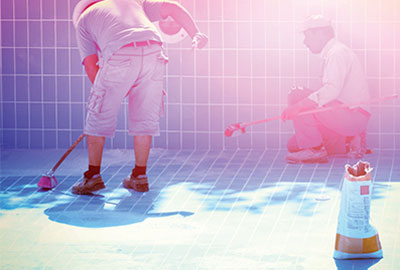FAQ
“A properly maintained swimming pool can potentially save a homeowner thousands in repairs over time”Founder

Pool water chemistry should be tested on a weekly basis.
Yes. The pool pump basket is emptied of debris, inspected for wear, and checked for leaks as well.
The preferred method is to perform bucket test. Learn more here: Click Here
A chlorine odor comes from too much “combined chlorine” opposed to “free chorine.” When the “combined chlorine” level is too high it is time to shack the pool. Shock will fix the odor.
There is no set time or schedule to add salt. The salt level of the pool needs to be monitored and salt should be added as needed.
Salt chlorine generators convert sodium chloride (NaCl), also known as table salt, into chlorine. These salt generators, also called salt cells, work by electrolysis. The salt water is electrically charged, which splits the salt molecules and generates chlorine (Cl).
Keeping a pool clean and the pool chemistry at sufficient levels will do 99% of the work of preventing algae. An algaecide can also be added to help prevent algae.
Usually a thorough brushing can remove stuck on debris or scum from the tiles at the water line. However, special enzymatic products are needed if the ring has been allowed to sit for an extended period of time.
Did you know THE AVERAGE PERSON SPENDS OVER
0+ HOURS
CLEANING THEIR POOL A MONTH? THATS A PART TIME JOB!